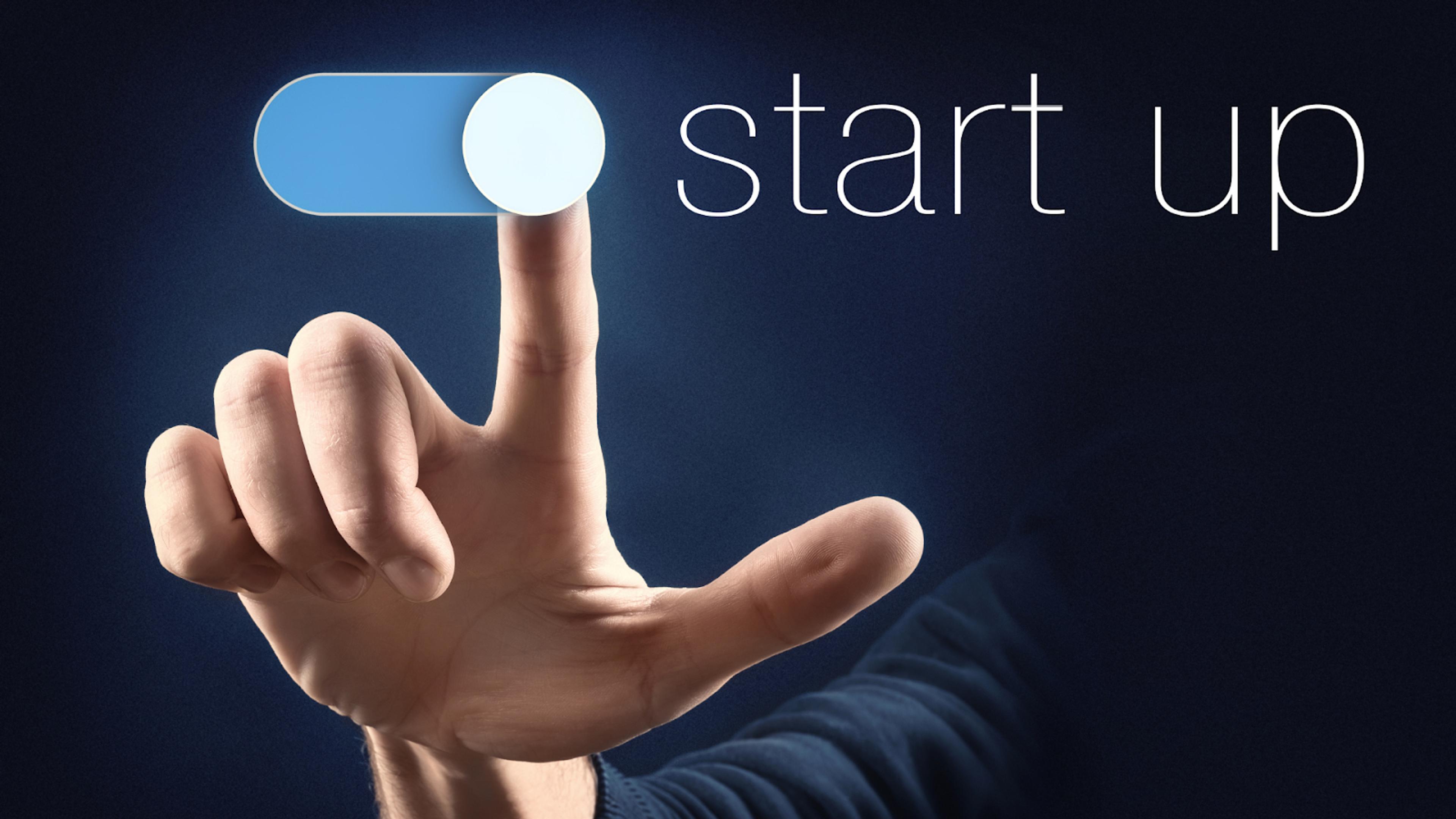The 10 Best Y Combinator Alternatives (2025)
Discover the 10 best Y Combinator alternatives for 2025—expert-vetted programs offering funding, mentorship, and support tailored to your startup’s needs.
Posted November 7, 2025

Join a free event
Learn from top coaches and industry experts in live, interactive sessions you can join for free.
Table of Contents
Not every founder fits the Y Combinator mold, and that’s a good thing. Whether you're building in an emerging market, focused on enterprise software, or looking for more tailored programs, there are dozens of startup accelerator programs around the world offering a better fit for certain startups.
Below, we break down the 10 best Y Combinator alternatives in 2025, based on founder reviews, portfolio performance, expert input, and access to funding, mentors, and market networks. Whether you're looking for industry-specific programs, stronger investor connections, or more international support, these top startup accelerators offer a compelling path.
Read: YC Application Guide: Process, Questions, & Deadlines
What Makes Y Combinator So Influential?
Since its founding in 2005, Y Combinator has become the gold standard for startup accelerator programs, often cited as the reason accelerator models gained mainstream adoption. It has backed over 4,000 startups, including Airbnb, Stripe, Dropbox, and Reddit, with a combined portfolio valuation exceeding $600 billion.
Here’s what makes YC uniquely powerful:
- Proven track record - YC alumni include some of the most successful startups in history. Their initial investment of $500K (as of 2024) gives startups immediate runway and investor credibility.
- Intensive 3-month program - YC’s format is known for creating intense focus on product-market fit, customer feedback loops, and early customer traction.
- Demo Day access - Startups pitch to a curated audience of top-tier venture capital firms, angels, and industry leaders, a key driver of further investment opportunities.
- Network effects - YC’s alumni network includes thousands of successful entrepreneurs who pay it forward through mentorship, intros, and support. It’s arguably the strongest support system in the startup ecosystem.
- Global reach - Despite its Silicon Valley roots, YC has increasingly accepted portfolio companies from emerging markets and different industries, diversifying its influence.
Read: Y Combinator: What it Is, How it Works, & How to Get In
YC also helped inspire benchmarks like MIT’s Seed Accelerator Benchmark, which continues to evaluate global accelerator performance based on metrics like valuation, survival rate, and follow-on funding.
But with all that said, YC isn’t perfect:
- The acceptance rate is under 2%, making it more selective than most Ivy League schools.
- The program can be too generalized for startups in regulated or niche verticals like enterprise software or sustainable food startups.
- Some founders prefer accelerator programs that offer longer-term operational support, free office space, or better alignment with their business models.
In short, YC is still a category leader, but today’s startup world offers a broader range of options. That’s why exploring Y Combinator alternatives is more relevant than ever for early-stage startups seeking the right accelerator to match their goals.
Read: YC Acceptance Rate: How Hard is It to Get In?
Why Look for Y Combinator Alternatives?
While Y Combinator (YC) remains one of the most well-known startup accelerator programs globally, it's not always the best choice for every founder. Here’s why many early-stage startups explore combinator alternatives:
YC is hyper-competitive and standardized; it’s not ideal for startups needing tailored programs. The terms and structure may not align with the goals of pre-seed startups or early-stage ventures. Also, YC tends to favor fast-scaling tech startups in Silicon Valley. If you're building in a niche market or a sustainable food startup, another accelerator program may be more aligned.
As one Quora respondent put it: “YC is a rocketship, but not every startup should be built like SpaceX.”
Top 10 Y Combinator Alternatives
1. Ellenox
Ellenox isn’t a traditional accelerator; it’s a venture studio and startup product lab for founders who want execution help, not just mentorship. Instead of running a fixed cohort, Ellenox works as a hands-on partner, embedding product, engineering, and go-to-market teams directly into startups. This model is ideal for early-stage tech startups, particularly those building in AI, enterprise SaaS, or deep tech.
- Website: ellenox.com
- Program Lead: Shubham Gupta
- HQ Location: Bengaluru, India (with U.S. operations)
- Company Types: AI, enterprise software, SaaS, deep tech
- Portfolio: 50+ startups supported
- Top Alumni: Stealth AI ventures, fintech SaaS startups (undisclosed)
- Alumni Exits: Early-stage acquisitions in enterprise SaaS
- Standout Strengths: Embedded product/engineering team, execution-focused model, tailored startup support
- Seed Funding: Varies; works more as a build-partner than an investor
- Best For: Pre-seed or early-stage founders needing technical support, not just pitch practice
“Unlike most accelerators, Ellenox doesn't just advise—you get a full-stack team to help build and launch your product.” - Founder quoted in Ellenox's own case studies
2. Techstar
With a global presence, Techstars is often considered one of the best startup accelerators for founders looking to tap into a strong network of mentors, alumni, and investors. They operate 50+ programs across different industries, from fintech to healthtech.
- Website: techstars.com
- Program Lead: Maëlle Gavet (CEO)
- HQ Location: Boulder, CO (Global presence)
- Company Types: Fintech, healthtech, mobility, SaaS
- Portfolio: 3,500+ startups
- Top Alumni: DigitalOcean, SendGrid, Chainalysis
- Alumni Exits: 400+ exits, 20+ unicorns
- Highlights: Extensive mentor networking opportunities, investor connections, industry-specific programs
- Seed funding: $20K–$120K with follow-on investment potential
- Best for: Founders seeking global reach and business development support
3. 500 Global (formerly 500 Startups)
500 Global offers a sharp focus on helping startups in emerging markets, with cohorts in LATAM, Southeast Asia, and the Middle East. Their robust investment network and focus on product-market fit make them a strong contender.
- Website: 500.co
- Program Lead: Christine Tsai (CEO & Founding Partner)
- HQ Location: San Francisco, CA (Global offices in MENA, Asia, LATAM)
- Company Types: Consumer internet, fintech, B2B SaaS, emerging tech
- Portfolio: 2,800+ startups
- Top Alumni: Canva, Credit Karma, Talkdesk
- Highlights: Market access, fundraising, and customer traction, emerging market focus
- Seed funding: Up to $150K
- Best for: Startups outside Silicon Valley looking to raise funding
4. Alchemist Accelerator
Designed specifically for enterprise software startups, Alchemist stands out for its focus on B2B innovation. Backed by top venture capital firms, it’s a go-to for founders building deep tech or SaaS solutions.
- Website: alchemistaccelerator.com
- Program Lead: Ravi Belani (Managing Director)
- HQ Location: San Francisco, CA
- Company Types: B2B SaaS, AI, industrial tech, deep tech
- Portfolio: 500+ startups
- Top Alumni: LaunchDarkly, Rigetti Computing, mPharma
- Alumni Exits: 50+ acquisitions, 3 IPOs
- Highlights: Enterprise focus, strong investor ties, business development resources
- Seed funding: $36K base, with larger follow-on rounds
- Best for: B2B and technical founders
5. Antler
Antler is redefining how startup accelerator programs support founders from day zero. With a presence in 20+ cities, they invest pre-idea and pair founders with co-founders and industry experts.
- Website: antler.co
- Program Lead: Magnus Grimeland (Founder & CEO)
- HQ Location: Singapore (Global presence)
- Company Types: AI, fintech, SaaS, healthtech, consumer tech
- Portfolio: 1,000+ startups
- Top Alumni: Volopay, PowerX, Sampingan
- Alumni Exits: Growing pipeline; 15+ Series A rounds closed in 2024
- Highlights: Experienced mentors, structured path, access to angel investors
- Seed funding: ~$125K
- Best for: Pre-product, idea-stage founders
6. StartX (Stanford-affiliated)
Run by and for Stanford entrepreneurs, StartX is a non-profit accelerator that doesn’t take equity. It’s one of the few programs offering invaluable resources and access to industry leaders without diluting ownership.
- Website: startx.com
- Program Lead: Joseph Huang (CEO)
- HQ Location: Palo Alto, CA
- Company Types: Medtech, edtech, AI, sustainability
- Portfolio: 700+ startups
- Top Alumni: Patreon, Lime, Branch Metrics
- Alumni Exits: 100+ exits, 20+ IPOs
- Highlights: Equity-free, valuable mentorship, exclusive Stanford network
- Seed funding: Optional via Stanford-StartX Fund
- Best for: Stanford-affiliated successful startups seeking founder-friendly terms
7. Plug and Play Tech Center
A corporate-focused accelerator, Plug and Play connects promising startups with blue-chip corporations for corporate partnerships and pilots.
- Website: plugandplaytechcenter.com
- Program Lead: Saeed Amidi (Founder & CEO)
- HQ Location: Sunnyvale, CA (Global presence)
- Company Types: Fintech, healthtech, insurtech, energy
- Portfolio: 1,000+ startups annually
- Top Alumni: PayPal (IPO), Lending Club (IPO), Rappi (Series D)
- Alumni Exits: 300+ exits, 20+ unicorns
- Highlights: Strong emphasis on customer acquisition, enterprise deals, and co-working spaces
- Seed funding: Varies; not central to the model
- Best for: Growth-stage startups seeking market access
8. Entrepreneur First
EF is unique: it invests in individuals, not companies. If you’re an exceptional technologist or business builder without a cofounder or idea, EF helps you build from scratch.
- Website: joinef.com
- Program Lead: Matt Clifford & Alice Bentinck (Co-Founders)
- HQ Location: London, UK (offices in Singapore, Toronto, Bangalore)
- Company Types: AI, deep tech, fintech, SaaS
- Portfolio: 500+ startups
- Top Alumni: Tractable, Cleo, Omnipresent
- Alumni Exits: 20+ Series B+ rounds, 3 unicorns
- Highlights: Founder-first, helps match cofounders, deep support system
- Seed funding: ~£80K–£120K
- Best for: Successful founders looking to try again with new ideas
9. Founders Factory
A hybrid accelerator and venture studio, Founders Factory is known for its hands-on operational support across different industries.
- Website: foundersfactory.com
- Program Lead: Henry Lane Fox (CEO)
- HQ Location: London, UK
- Company Types: Fintech, media, AI, healthtech, climate
- Portfolio: 300+ startups
- Top Alumni: Zego, Peachy, Koyo
- Alumni Exits: 25+ exits, 6+ unicorns
- Highlights: In-house team support, partnerships with corporates, help with business models, and product
- Seed funding: ~$150K + studio resources
- Best for: Early-stage companies needing hands-on help
10. MassChallenge
A non-equity accelerator that supports early-stage startups through mentorship, competitions, and access to cloud credits and services. Especially strong for sustainable food startups and social impact ventures.
- Website: masschallenge.org
- Program Lead: Cait Brumme (CEO)
- HQ Location: Boston, MA (Global hubs in Israel, Mexico, Switzerland)
- Company Types: Social impact, food innovation, biotech, cleantech
- Portfolio: 3,000+ startups
- Top Alumni: Ginkgo Bioworks, Neurable, Formlabs
- Alumni Exits: 300+ exits, 20+ IPOs
- Highlights: Equity-free, global network, diverse startup ecosystem
- Best for: Mission-driven or pre-seed startups looking for expert mentorship
Bonus: Pitchdrive
With a growing footprint in Europe and Africa, Pitchdrive is one of the top accelerators gaining traction globally. Their programs focus on helping tech startups raise funding and scale in non-U.S. markets.
- Website pitchdrive.com
- Program Lead: Somto Ifezue (Founder & CEO)
- HQ Location: Lagos, Nigeria / Brussels, Belgium
- Company Types: SaaS, fintech, logistics, healthtech
- Portfolio: 100+ startups
- Top Alumni: Termii, Herconomy, Treepz
- Alumni Exits: 10+ successful exits and follow-on rounds
- Highlights: Focus on venture capital firms, investment opportunities, and tailored founder support
- Seed funding: Varies by cohort
- Best for: Growing startups outside of the U.S.
If you need more help in finding your best-fit accelerator, talk to a startup coach who’s helped founders get into top startup accelerator programs across the globe. They'll help you identify the right fit, prep your application, and land funding.
How to Choose the Right Alternative
The biggest mistake early-stage founders make? Assuming all accelerator programs are interchangeable. They’re not. Each one is built on a unique thesis, on which they invest, when they engage, and how they create value. The right accelerator for you depends entirely on your stage, goals, and growth strategy. Here’s how experienced founders and investors approach the decision.
Clarify Your Stage and Startup Maturity
Before you even compare names, define where your company actually is. Are you pre-product and still searching for a cofounder? Pre-seed with an MVP and early traction? Or post-revenue and looking to scale?
Your stage determines your best fit. Founders still validating ideas thrive in programs like Antler or Entrepreneur First, which specialize in founder formation and early hypothesis testing. Startups with an MVP and measurable traction tend to benefit from more structured accelerator programs like Techstars, 500 Global, or Founders Factory, where the focus shifts to refining business models and fundraising strategy. If you’ve already found product-market fit and are scaling B2B, programs like Alchemist Accelerator or Plug and Play offer direct access to corporate partners and enterprise clients.
And if you don’t yet have a technical team or in-house product capability? A venture studio like Ellenox may be a smarter first step; it builds with you, not just around you.
Think Regionally and Strategically
Accelerator fit isn’t just about program quality but also about geographic alignment and market relevance. Location influences your access to investors, partners, and customers.
If you’re building for emerging markets, consider networks that already have regional depth, such as 500 Global in Southeast Asia or Pitchdrive across Africa and Europe. If your ambition is to raise from U.S. venture capital or establish a Silicon Valley presence, global brands like Techstars or YC’s own alumni network carry significant weight. European and African founders, on the other hand, often find better traction and localized mentorship in programs like Ellenox or Founders Factory, where support systems are less centralized and more founder-focused.
Choose a region where your accelerator has active investors, not just a satellite office. That distinction can determine whether you leave Demo Day with warm introductions—or cold LinkedIn requests.
Understand the Funding and Equity Equation
Not all accelerators invest equally or take the same amount of equity. The terms can vary widely, and understanding the true cost of participation is critical.
Equity-free programs like StartX and MassChallenge let you retain full ownership but typically provide less capital upfront. On the other end, programs like Techstars, 500 Global, and Antler offer seed funding with clear follow-on potential, trading small equity stakes for early validation and investor access. Venture studios such as Ellenox or Founders Factory operate differently, offering “sweat equity” in the form of engineering, product, and go-to-market execution (resources that can dramatically accelerate your time to launch).
Expert founders don’t just look at the equity percentage; they calculate effective dilution. That includes follow-on SAFEs, advisory shares, or any long-term equity hooks that might quietly compound over time. The most prestigious program isn’t always the best financial fit—especially if you’re already capable of raising capital independently.
Evaluate the Network and Alumni Outcomes
The real value of an accelerator starts after the program ends. Alumni networks can open doors that no curriculum ever could, but not all are created equal.
Look for evidence of engaged alumni communities, active investor intros, and measurable outcomes. Does the network include founders in your sector or stage? Are mentors successful operators, or simply advisors who’ve never built a company? Programs like Techstars and Alchemist have deep ecosystems that support founders years after graduation, while EF and Antler maintain close alumni circles that continue to collaborate on future ventures.
Use tools like MIT’s Seed Accelerator Benchmark, AngelList, and Crunchbase to evaluate a program’s historical impact. High valuations and unicorns are nice, but what you really want is a community that stays accessible, responsive, and invested in your growth long after Demo Day.
Be Honest About the Kind of Support You Need
Finally, strip away the hype and focus on what will genuinely move your company forward. Do you need high-level mentorship, tangible investor access, or literal execution help building your product and brand?
If your team is already strong and you need introductions, Techstars or 500 Global will open doors. If you’re looking for real hands-on execution (engineering, GTM, design), then a hybrid venture studio like Ellenox or Founders Factory can make more impact in 12 weeks than a traditional accelerator could in a year. For introspective founders still shaping their vision, programs like Entrepreneur First and Antler provide accountability and structure to validate ideas before they consume capital.
Final Thoughts
The startup world is broader than ever. Whether you're chasing seed funding, access to industry experts, or a more extensive network, the right accelerator program can be a launchpad for long-term success.
YC is still powerful, but so are these Y Combinator alternatives. Use tools like MIT's Seed Accelerator Benchmark to evaluate programs, or talk to startup founders who've been through them.
Need help deciding which accelerator is the best fit? Work with a top startup coach who's helped dozens of founders evaluate programs, build their pitch decks, and land spots at top accelerators like YC, Techstars, and EF. Also, check out free events to learn more!
See: Top 10 Entrepreneurship & Startup Coaches
Read next:
- How to Build the Best Y Combinator Pitch Deck
- 25+ Questions To Ask At a Career Fair
- 20+ Second-Round Interview Questions You Need to Know
- What It (Actually) Takes to Land Your First Job in 2025
- How to Build Your Career Outside of the US
- An Expert’s Guide to Resumes: Five Tips to Make You Stand Out
FAQs
What are the best Y Combinator alternatives in 2025?
- Techstars, 500 Global, Alchemist, StartX, and Entrepreneur First are among the top Y Combinator alternatives this year, each with unique strengths.
How do accelerator programs help startups?
- They offer funding, mentorship, investor connections, and structured growth paths, often in exchange for equity.
Is YC the best accelerator for tech startups?
- It depends. YC is great for many tech startups, but programs like Alchemist or Plug and Play may be better for enterprise-focused founders.
What makes an accelerator program successful?
- A proven track record, strong alumni network, access to fundraising and customer traction, and alignment with your business model and stage.
Are there accelerator programs that don’t take equity?
- Yes, StartX and MassChallenge are two well-regarded accelerator programs that do not take equity.














